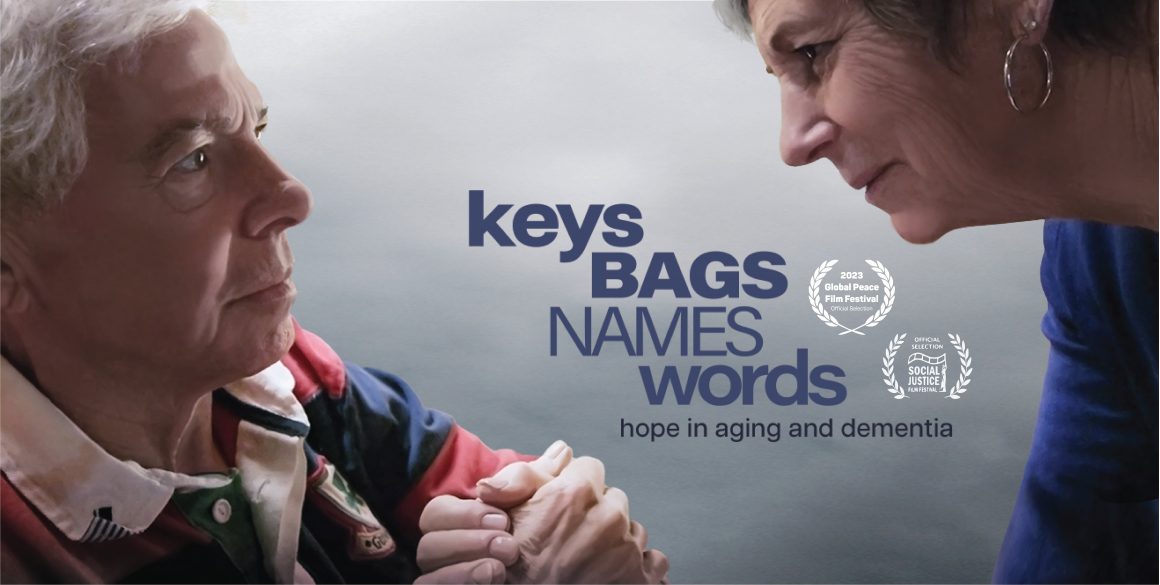
Keys Bags Names Words offers a positive perspective on dementia
By Leonie O’Sullivan, April 6 2024—
Calgary’s Third ACTion Film Festival set out to change the societal narrative by celebrating and advocating for those in their third act of life. Running from Mar. 22-24, the festival focused on “guiding an age-positive cultural shift.” Among the featured films was Keys Bags Names Words, directed by Cynthia Stone. This documentary film educates viewers on the realities of living with dementia. Dementia is not a disease that affects just one individual, it affects family units and relationships.
It’s important to remember that the individual with dementia is not lost. This was echoed in the inspirational relationship between Jill Harmon and her late husband, Don, who battled dementia. Jill emphasized that dementia was merely a facet of Don’s identity and that it did not define him. Following nearly three decades of marriage, Jill became Don’s caregiver. Jill expressed how even though she missed who he used to be, she was still foolishly in love with Don after 14 years of taking care of him. Jill had to come to terms with not being able to save him. Towards the end, we see Don in the later stages of dementia and Jill affectionately assuring him that he’ll always be with her.
Dementia isn’t a normal part of ageing, and it doesn’t only affect the older generation. Dementia is an umbrella term encompassing a range of symptoms affecting memory, cognition and social skills. Alzheimer’s disease (AD) falls under this umbrella. It is the most common cause of dementia, resulting in an abnormal buildup of toxic proteins in the brain that leads to nerve cell damage and disconnections.
Currently, there is no cure or disease-modifying drug for AD. However, that doesn’t mean individuals living with AD cannot experience a high quality of life. Keys Bags Names Words highlighted the role of the arts in supporting those affected by AD until science can provide an answer. In particular, music was highlighted as a strong motivator for physical activity and as an inducer of memories.
The act of coming together with a community of individuals facing the same symptoms can be as profound as the activity itself. Across the world, groups engaging in medically supervised exercise emphasized the significance of this communal support. This sense of belonging cannot be underestimated, highlighting the importance of inclusivity to foster greater self-esteem.
The person living with AD is still there. They are not gone. Even in the later stages of the disease, where speech may falter, their ability to connect often persists, you just need to find the right key to unlock that connection. The late Jeanette Carter was one of the individuals featured in the film who was losing their speech ability. Through dance, Carter displayed a clear ability to connect strongly with others.
The documentary gave the Global Brain Health Institute (GBHI) the platform and recognition they deserve for their worldwide and diverse initiatives to increase equity in brain health. Prof. Brian Lawlor, from the GBHI, noted that 30 to 40 per cent of dementia cases in elders are preventable. Managing blood pressure and maintaining an active lifestyle may delay the onset of AD. With the prevalence of dementia on the rise, we must translate the available evidence into policy and practice, to prioritize prevention and enhance the quality of life for those impacted by AD.
